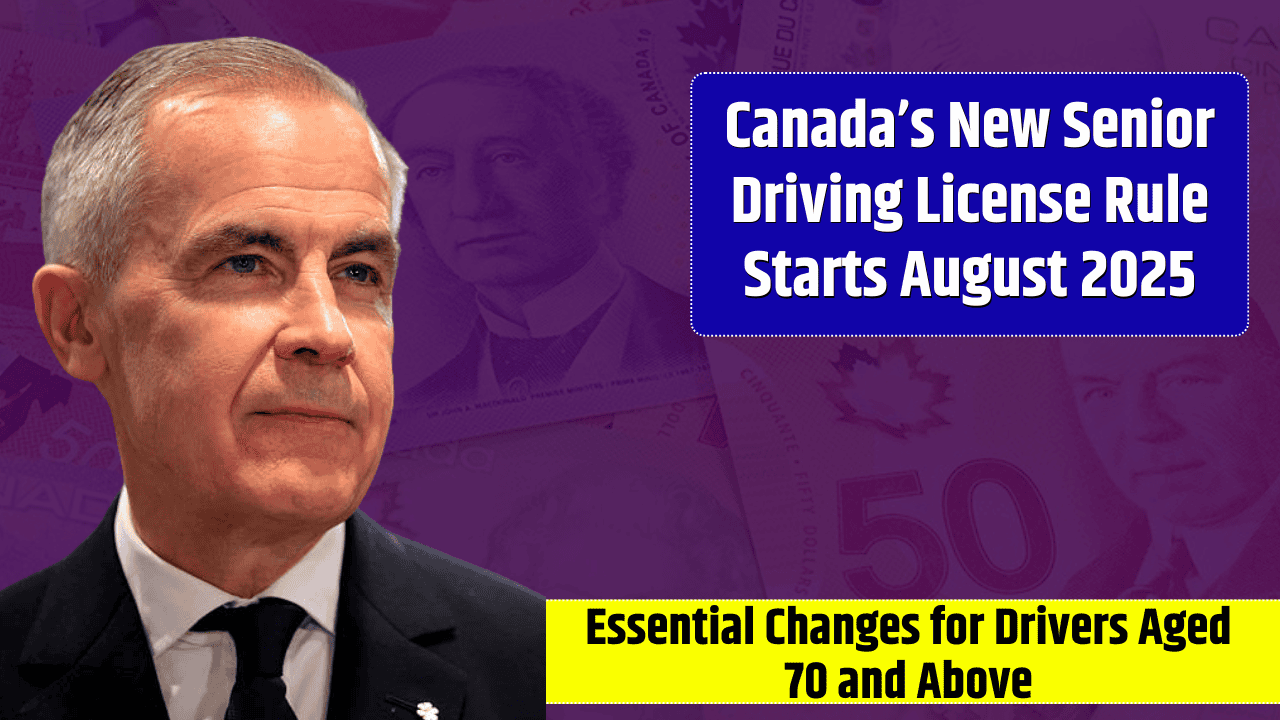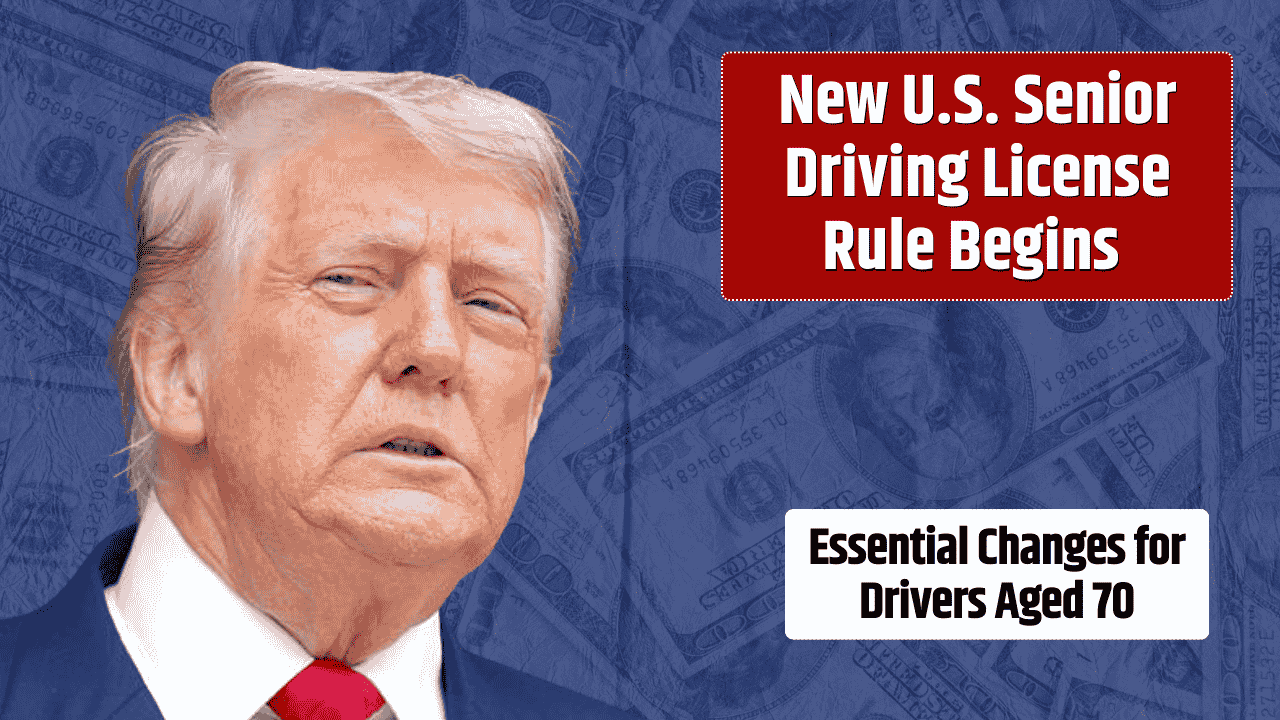It’s no secret that Britain’s roads are getting greyer. And starting August 2025, the UK’s older drivers — specifically those aged 70 and up — might need to jump through a few more hoops to keep their licenses. The Driver and Vehicle Licensing Agency (DVLA) is gearing up for what could be the biggest shake-up to senior driving rules in decades, all in the name of road safety. But while the government hasn’t rolled out the full rulebook yet, the whispers and speculation have already kicked up a storm in living rooms, GP waiting areas, and local cafés across the country.
Table of Contents
The Rules Right Now
Under the current system, once you hit 70, you must renew your licence every three years. That renewal is surprisingly straightforward: fill out a form (online or by post), tick a few boxes about your health, and confirm you meet the basic eyesight standard — being able to read a number plate from 20 metres away. Unless you declare a medical issue, no doctor’s note, no road test, no drama.
The DVLA even lets you handle it all from home, and according to gov.uk’s official guidance, most renewals go through without a hitch.
What’s Changing from August 2025?
While the DVLA hasn’t published the final checklist, officials have signalled they want a more robust system. That could mean:
| Possible New Measure | Who It Could Affect |
|---|---|
| Mandatory GP or optometrist certification | Drivers with declared vision or medical concerns |
| Shorter renewal periods (e.g., every 2 years) | High-risk medical groups |
| Cognitive reaction time testing | Drivers with memory or neurological concerns |
| On-road driving assessments | Only in flagged cases — not for all drivers |
These proposals reflect a growing concern backed by research from the UK’s Office for National Statistics — Britain’s ageing population is driving more and for longer. With that comes an increased likelihood of age-related vision decline, slower reaction times, and conditions such as dementia or Parkinson’s that could affect driving.
Who Might Face Extra Scrutiny?
It’s not a blanket crackdown. If you’re 72, in good health, with no flagged medical conditions, you may still just do the self-declaration and vision check.
However, you’re more likely to be asked for extra proof if you have:
- Significant vision impairment (even if corrected by glasses)
- Progressive neurological conditions
- Severe cardiovascular problems
- A history of seizures or fainting spells
The DVLA already has powers under the Road Traffic Act to investigate medical fitness to drive, but the new framework may make these checks more routine for older drivers in higher-risk categories.
Why Now?
Two reasons: demographics and safety. In 1990, only about 5 million people in the UK were aged 70 or over. By 2025, that number is pushing past 10 million. More older drivers means more chances for age-related health issues to show up behind the wheel.
Officials stress this isn’t about targeting older people, but about keeping roads safe for everyone — especially as traffic volume and urban congestion increase.
The Critics’ Corner
Not everyone’s buying the safety-first pitch. Opponents say the policy risks stereotyping older drivers as unsafe, when accident data shows younger drivers still cause a larger share of crashes per capita. There’s also concern about rural areas, where losing a licence can mean losing independence, given limited public transport.
Advocates counter that early detection of health-related driving risks can prevent serious accidents and allow drivers to adapt — maybe by limiting night driving or sticking to familiar routes — rather than being banned outright.
How Families Can Help
If you’ve got a parent or grandparent still driving, now’s the time to start gently talking about these changes. Not in a “hand over your keys” way, but in a supportive, solutions-focused way.
Encourage:
- Regular vision and hearing tests
- GP check-ups to monitor driving-related health
- Practice drives with a family member to spot potential issues
- Exploring backup transport options before they’re needed
The emotional side is just as important as the practical side. For many, a licence isn’t just a plastic card — it’s freedom, dignity, and connection to the outside world.
Fact Check
As of June 2025, there’s no finalised DVLA policy requiring all over-70s to take medical exams or driving tests. The July 2025 update is expected to bring in stricter checks for certain health conditions, but healthy drivers may see little change beyond paperwork tweaks. Official guidance will appear first on gov.uk once confirmed.
FAQs
Will all over-70s have to take a driving test?
No. If you meet the medical and vision requirements, you can continue driving without a new test.
Is a doctor’s certificate now required?
Not yet confirmed. As of June 2025, there’s no blanket rule, but it’s a likely addition for certain medical cases.
What conditions could lead to losing your licence?
Severe cognitive decline, major vision loss, uncontrolled epilepsy, or serious cardiovascular issues.
Is this policy age discrimination?
Legally, no. It’s aimed at public safety and applies health-based checks regardless of age, though over-70s are the focus.
Can you appeal a DVLA decision?
Yes. There’s an appeals process if you believe you’ve been unfairly assessed.














